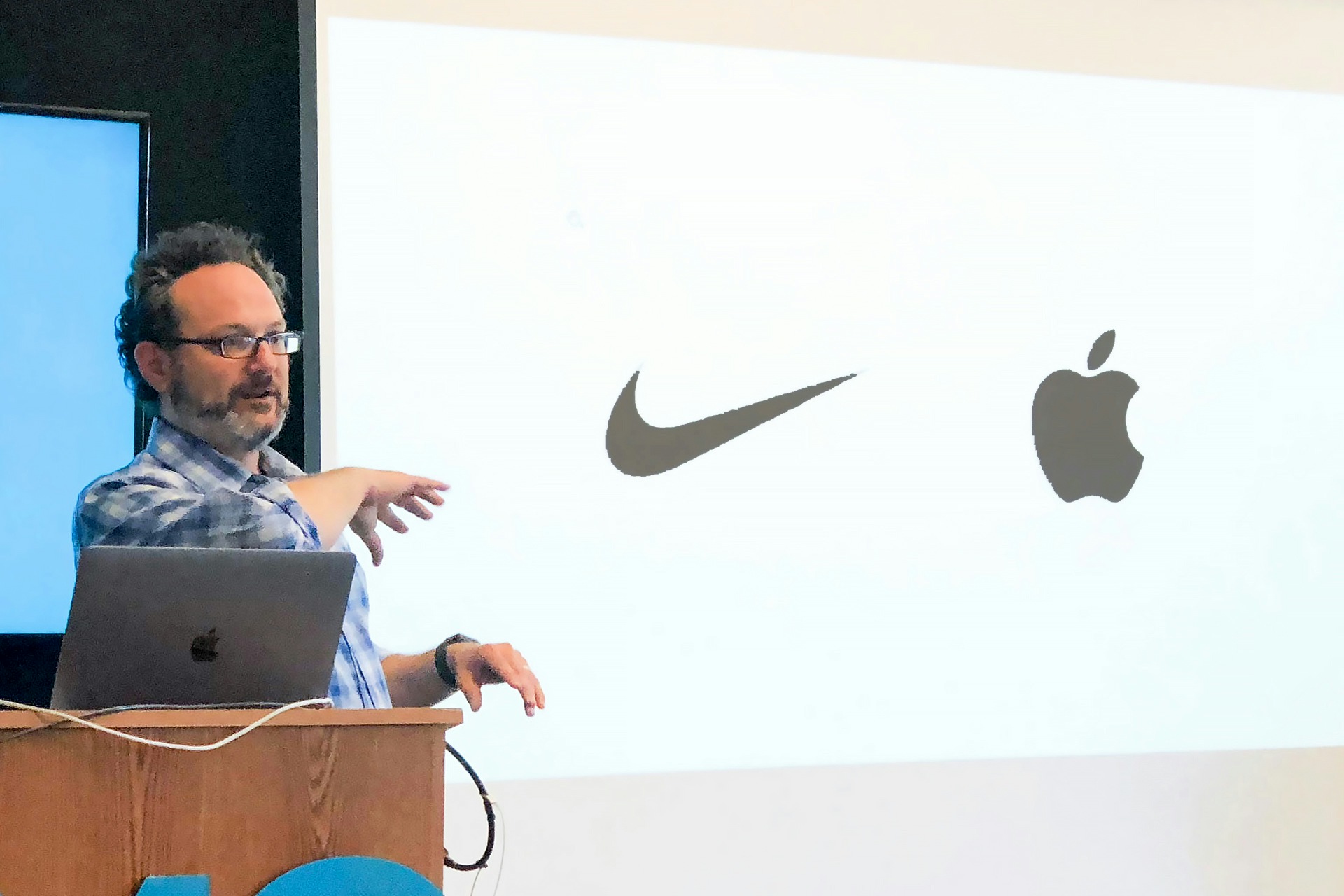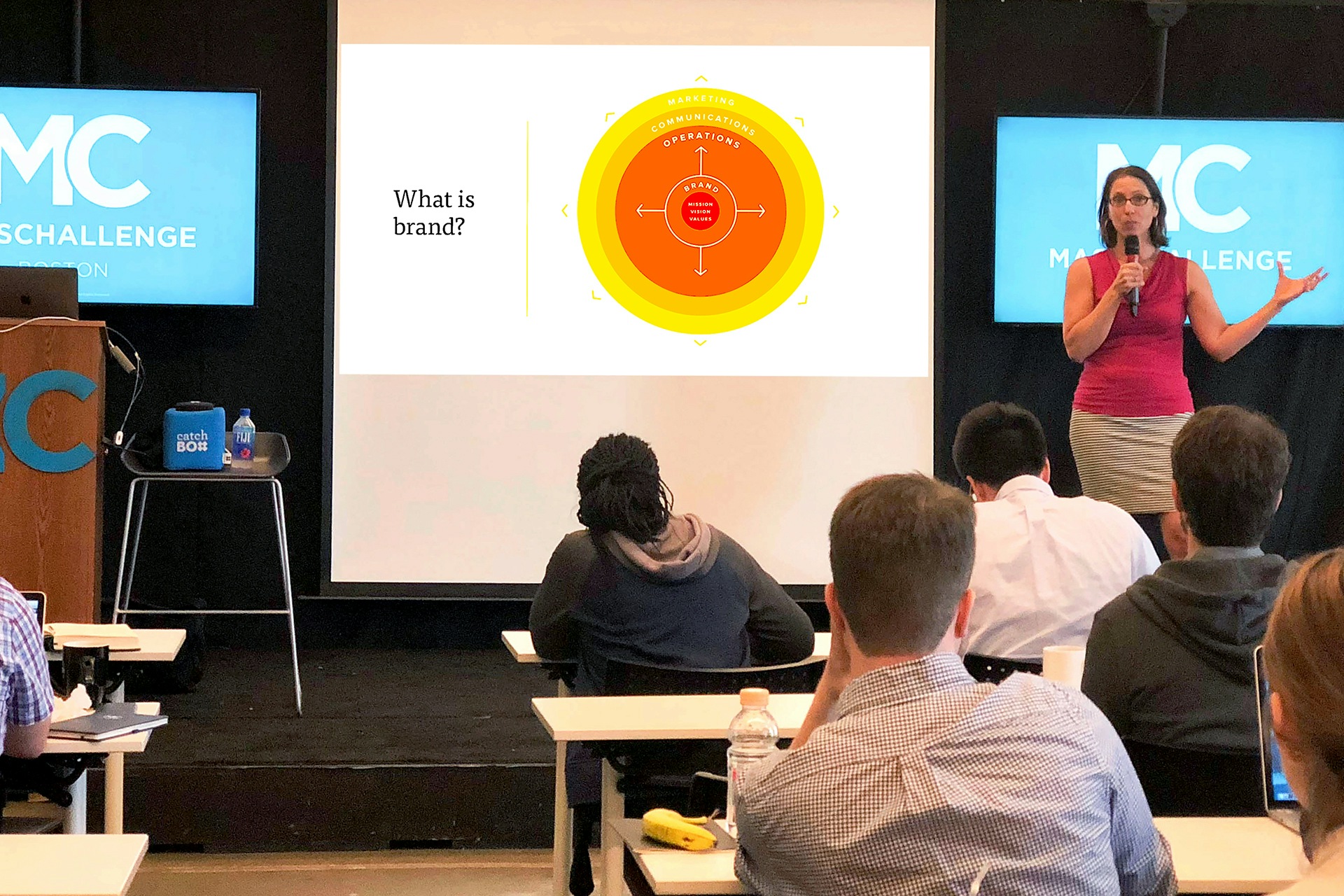By Scott Smith
December 1, 2018
MassChallenge is a nonprofit accelerator that works with new companies across multiple industries with a focus on providing resources to a diverse group of founders. They don’t take equity from their startups but rather focus on providing resources and a rich community for networking and cross-pollination. According to MassChallenge, 42% of their startups have been founded by women. Check them out—they’ve got six locations in three countries.
We were honored to be invited to conduct a brand workshop with Boston-area startups this summer. We designed our workshop with the early-stage startup in mind. Many are bootstrapping their companies themselves; most are busy as hell and challenged to balance the ever-growing complexities of a startup; very few have time or funds to create a proper brand.

We began by dispelling the misconception that a brand is simply a logo or mark that represents a business or organization. It’s actually a combination of all the thoughts, images, and messages that exist for internal and external audiences. It then goes to show that creating a successful brand takes a more complex process than designing a logo. You must look deeply at who you are as an organization from different angles, study the market position you want to occupy, and understand your audiences. When done right, your brand can be an incredible accelerator for your business.

The truth is, your brand will exist in the world whether you do anything or not. The wise action is to define yourself and think strategically before your identity gets defined for you. Many startups understandably struggle with this. They’re overwhelmed with the vastness of their undertaking—money is tight and needs to go toward operations, personnel, and other vital functions. Investing in brand can feel hard to rationalize. We get it. Many startups are run by new entrepreneurs, people who have never run a company before. Regardless of experience level, founders are looking to optimize operations, secure funding, keep finances in order, and find market fit—all while competing for attention and dollars. Brand and communications are often put on the back burner.
We offered the founders a DIY methodology and framework for getting to the core of their brand by putting together a rudimentary brand platform. At heart, our message was to spend some time thinking about the basics of a brand strategy.
First and foremost, define your core values. What do you stand for? What do you really believe in? What beliefs do you have that you think will ensure your success? What beliefs do you have in common with your ideal customer? Then: who are your audiences and what are their wants/needs/fears? How might your brand and communications speak clearly to them? We ran through a dynamic exercise, ideating on these themes and then talking through some examples.
Audiences are key, of course. Startup founders are always thinking about their customers but we focused on empathy. What do your audiences want? The point is not to pander—it’s to more deeply understand how you fulfill those needs with your product or service, your ideas, your values.
A really successful brand draws a clear intersection between the company’s core offering and the customer’s goals. Then it’s about finding a way to convey this intersection clearly through your logo, identity, messaging, tone of voice, and other touchpoints.